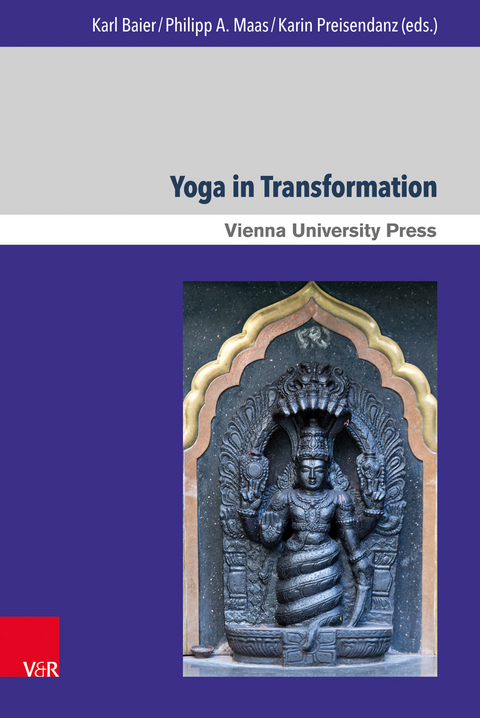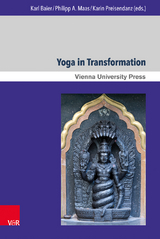Yoga in Transformation
Historical and Contemporary Perspectives
Seiten
The religious, social and cultural contexts of yoga
This volume explores aspects of yoga over a period of about 2500 years. In its first part, it investigates facets of the South Asian and Tibetan traditions of yoga, such as the evolution of posture practice, the relationship between yoga and sex, yoga in the theistic context, the influence of Buddhism on early yoga, and the encounter of Islam with classical yoga. The second part addresses aspects of modern globalised yoga and its historical formation, as for example the emergence of yoga in Viennese occultism, the integration of yoga and nature cure in modern India, the eventisation of yoga in a global setting, and the development of Patañjali's iconography. In keeping with the current trend in yoga studies, the emphasis of the volume is on the practice of yoga and its theoretical underpinnings.
This volume explores aspects of yoga over a period of about 2500 years. In its first part, it investigates facets of the South Asian and Tibetan traditions of yoga, such as the evolution of posture practice, the relationship between yoga and sex, yoga in the theistic context, the influence of Buddhism on early yoga, and the encounter of Islam with classical yoga. The second part addresses aspects of modern globalised yoga and its historical formation, as for example the emergence of yoga in Viennese occultism, the integration of yoga and nature cure in modern India, the eventisation of yoga in a global setting, and the development of Patañjali's iconography. In keeping with the current trend in yoga studies, the emphasis of the volume is on the practice of yoga and its theoretical underpinnings.
Prof Dr Karl Baier is Head of the Department of Religious Studies, University of Vienna. His research interests include nineteenth and twentieth-century alternative religion, occultism and modern yoga.
Dr Philipp A. Maas is Research Associate at the Institute for Indology and Central Asian Studies, University of Leipzig. His work is focused on Patañjali’s Yoga in premodern South Asia and in modern academic research, on Indian philosophy and on Ayurveda.
Prof Dr Karin Preisendanz holds the Chair of Indology at the Department of South Asian, Tibetan and Buddhist Studies of the University of Vienna, Austria, and specialises in the history of South Asian philosophy and classical Ayurveda.
| Erscheinungsdatum | 27.08.2018 |
|---|---|
| Reihe/Serie | Wiener Forum für Theologie und Religionswissenschaft ; Band 016 |
| Co-Autor | Karl Baier, Philipp André Maas, Karin Preisendanz, Joseph S. Alter, Anand Amaladass, Ian Baker, Jason Birch, Gudrun Bühnemann, Maya Burger, Beatrix Hauser, Catharina Kiehnle, Anne Koch, James Mallinson, Suzanne Newcombe, Marion Rastelli, Dominik Wujastyk, Noémie Verdon |
| Mitarbeit |
Berater: Jean-Robert Tyran |
| Zusatzinfo | with 55 figures |
| Verlagsort | Göttingen |
| Sprache | englisch |
| Maße | 160 x 237 mm |
| Gewicht | 1028 g |
| Themenwelt | Geisteswissenschaften ► Philosophie ► Östliche Philosophie |
| Geisteswissenschaften ► Religion / Theologie | |
| Schlagworte | Buddhismus • Hatha Yoga • Indien • Indien /Religion • Moderner Yoga • Südostasien /Religion • Tibet • Yoga • Yogasutra |
| ISBN-10 | 3-8471-0862-X / 384710862X |
| ISBN-13 | 978-3-8471-0862-7 / 9783847108627 |
| Zustand | Neuware |
| Haben Sie eine Frage zum Produkt? |
Mehr entdecken
aus dem Bereich
aus dem Bereich




